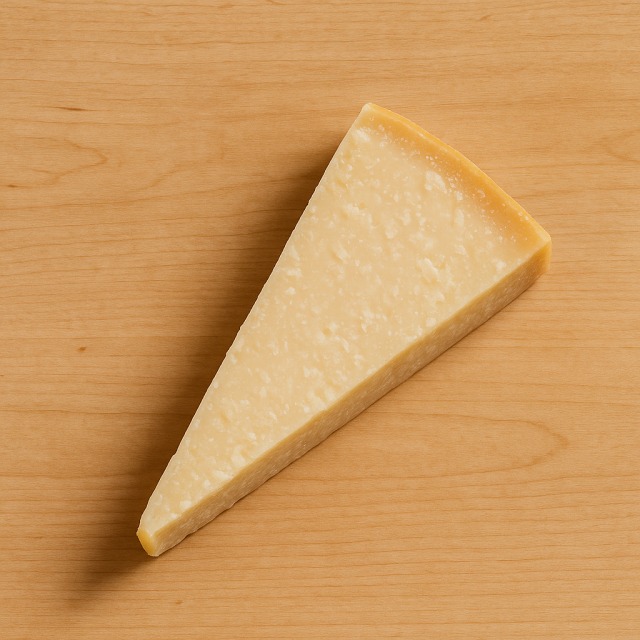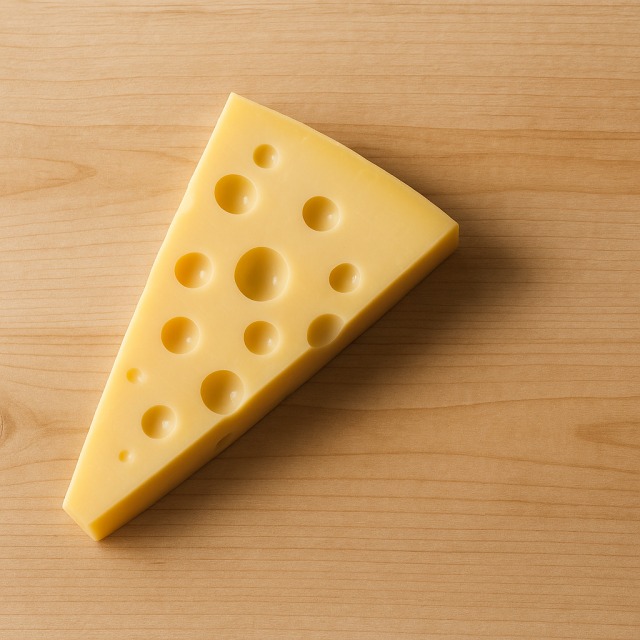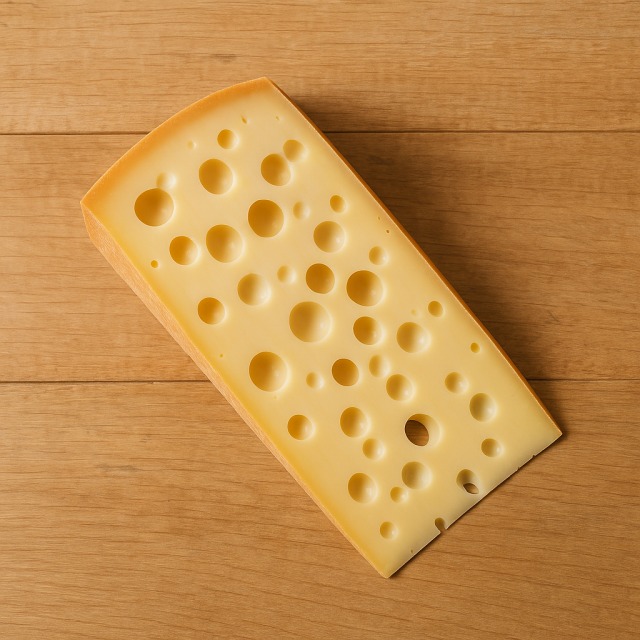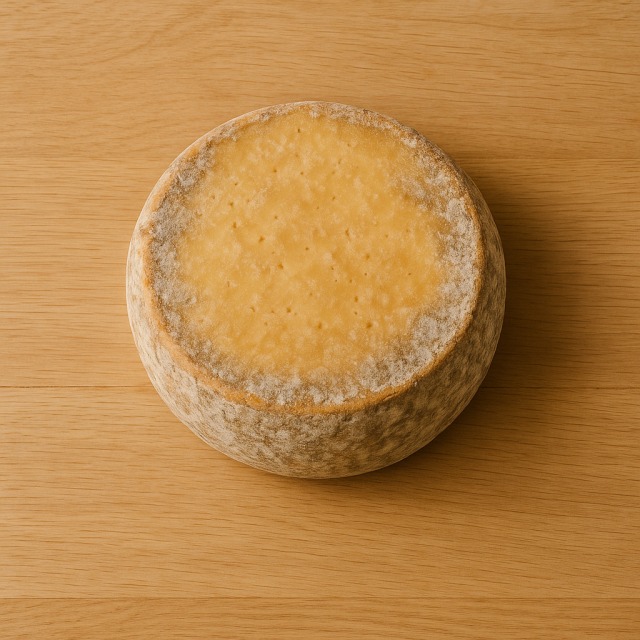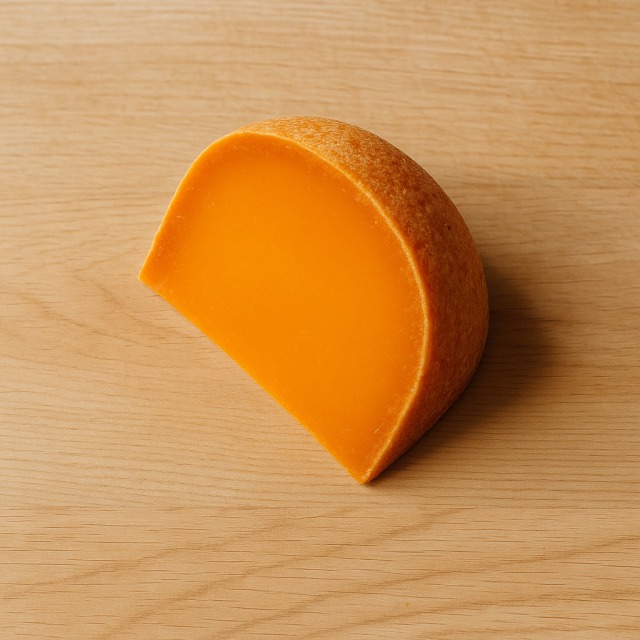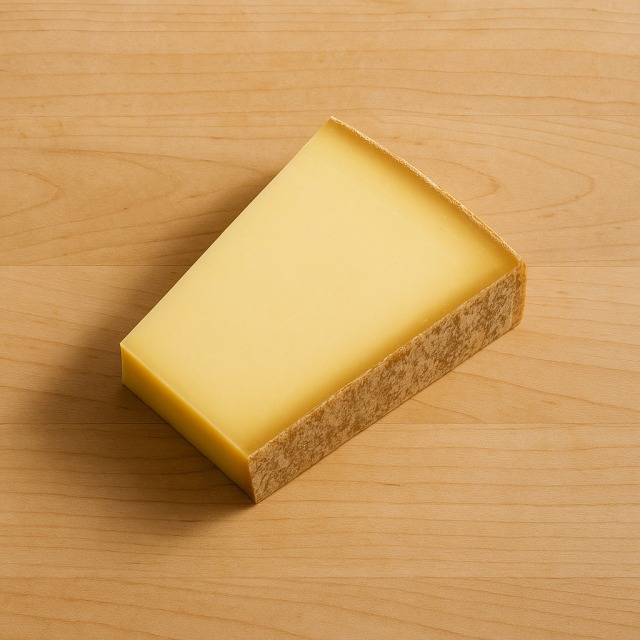Calorie Chart / Cheeses / Appenzeller
How Many Calories Are in Appenzeller?
Calculation of the nutritional value & Recommended Dietary Intake of Appenzeller
For g and a calorie requirement of kcal
| Calories 164 kcal | Proteins 11 g | Lipids 13 g | Carbohydrates 0 g |
| 8% | 15% | 19% | 0% |
Health benefits of Appenzeller
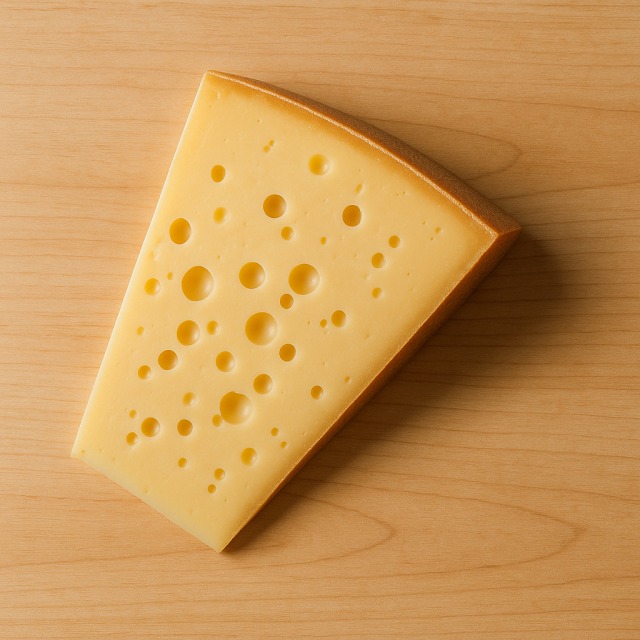
Appenzeller - 100g
Calories 409 kcal
Proteins 28 g
Lipids 33 g
Carbohydrates 0 g
Appenzeller is a high-calorie alpine cheese; most of these calories stem from naturally rich milk lipids that also deliver conjugated linoleic acid (CLA). Because its calories come with about 28 g of protein per 100 g, the cheese offers a satiating profile that helps some eaters control overall calories by curbing hunger more efficiently than low-protein snacks.
Beyond calories, Appenzeller supplies generous amounts of calcium, phosphorus, and vitamin B12, nutrients essential for bone health and energy metabolism. It also provides vitamin A for vision, vitamin K2 (supposed benefit: may improve calcium deposition in bones), and zinc to support immune function. With virtually no carbohydrates, the calories are almost exclusively fat- and protein-based, making it popular in low-carb or ketogenic plans where managing daily calories from carbs is critical.
The cheese has been produced in the Appenzell region of Switzerland since the 13th century. Artisanal wheels are rubbed with a secret brine of herbs and white wine, which contributes to its aromatic rind while adding negligible calories. Like other mountain varieties such as Gruyère and Beaufort, it matures at altitude where cool cellars naturally regulate moisture lost during aging. Its long heritage and Protected Geographical Indication status make each bite of its calories an authentic taste of Swiss terroir.
Tips for incorporating Appenzeller into a balanced diet
Because its calories are dense, a little Appenzeller goes a long way in balanced meals. Melt a thin slice over steamed broccoli or roasted pumpkin to obtain creamy flavor while keeping total calories moderate. You will add color, fiber, and micronutrients without piling on excessive calories from cheese alone.
If you crave a hearty mountain dish, prepare a lighter raclette: mix equal weights of Appenzeller and lower-fat Cancoillotte, then serve with boiled potato and a crisp salad of arugula. This combination spreads the calories of melted cheese over more volume, helping with portion control.
For a protein-rich sandwich after training, layer Appenzeller with sliced cured ham and pickled onions on toasted wholemeal bread. Toasting intensifies flavor so you can use less cheese, trim calories, and still satisfy your taste buds. Like a classic fondue, it also pairs well with dry white wine, yet a side of sparkling water will cut calories if you monitor daily intake.
Frequently Asked Questions
- How many calories are in Appenzeller?
- There are 409 kcal per 100 g.
- Is Appenzeller considered a high-calorie cheese?
- Yes, its 409 kcal per 100 g classify it as high-calorie, so portions should be adjusted when you track daily calories.
- Does Appenzeller fit into a low-carb or keto diet?
- It contains virtually no carbohydrates, so all calories come from fat and protein, making it compatible with keto provided you count calories carefully.
- What nutrients justify the calories in Appenzeller?
- The calories accompany significant calcium, vitamin B12, vitamin A, and high-quality protein, offering nutritional value that lighter foods with fewer calories may lack.
- How can I reduce calories when cooking with Appenzeller?
- Use smaller shavings for garnish, mix it with lower-fat cheeses, and pair it with high-volume vegetables; these tricks add flavor but keep total plate calories under control.
Similar foods
Information provided by Calorie Menu may contain inaccuracies or errors. It cannot, under any circumstances, substitute medical advice or medication.
